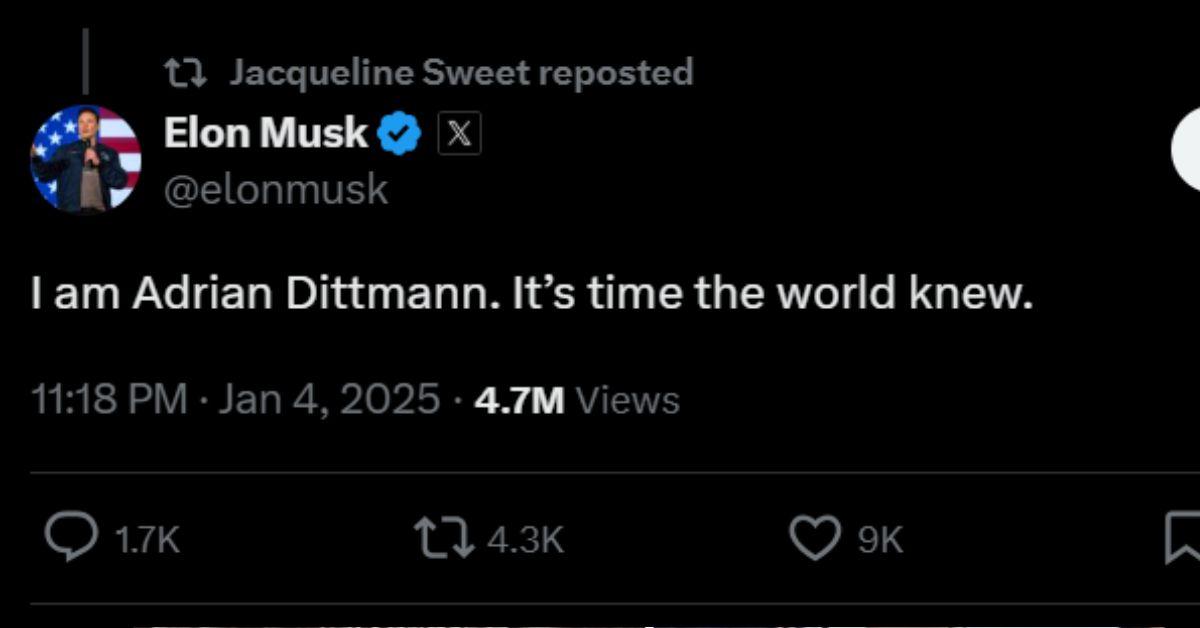Billionaire Ego-Busters: Elon Musk's $132B Loss Reveals A Larger Reality
The rich get richer, and the gap between the haves and have-nots continues to widen. However, the latest financial revelations about billionaire entrepreneur Elon Musk have sparked a conversation about the excesses of the ultra-rich and the societal implications of their wealth. Musk, the CEO of SpaceX and Tesla, has seen his net worth plummet to $132 billion, according to a recent report. This staggering loss raises more questions than answers about the sustainability of his business empire and the larger reality of wealth inequality.
The reporting of Musk's financial loss has dominated headlines worldwide, with many outlets hailing it as a surprise. However, the bigger picture is often overlooked in the midst of sensationalized news. To truly understand the significance of Musk's financial woes, it's essential to consider the broader context of wealth and power in the modern era.
The wealth of billionaires like Musk is often equated with success, but it's also important to acknowledge the often-convenient myth that wealth creation is solely the result of individual hard work and dedication. The historical record suggests that the concentration of wealth among the ultra-rich has been a persistent feature of capitalism, with the majority of the population left to struggle for scraps from the table.
The Cult of Elon Musk
Elon Musk's personal brand is a fascinating case study in the power of self-mythologization. The entrepreneur's relentless self-promotion and assertion of his own superiority have made him a global figure, with a massive following across social media platforms. Musk's Twitter presence is particularly noteworthy, where he frequently uses the platform to disseminate his thoughts on everything from space exploration to artificial intelligence.
However, the mythology surrounding Musk's persona has a darker side. His relentless focus on individual achievement and innovation has created a cult-like following among fans, who see him as a visionary leader. This is particularly problematic, as it distractingly diverts attention away from the systemic issues that contribute to inequality and wealth disparities.
Musk's Business Empire
Tesla, the electric vehicle manufacturer co-founded by Musk, is a prime example of how a single company can dominate an entire industry. The brand's market value has soared in recent years, with the company's stock price more than tripling since 2020. However, this success has also masked deeper structural issues within the company, including production costs, supply chain management, and regulatory challenges.
The production costs of Tesla's cars, in particular, have been a source of concern, with reports suggesting that the company's labor costs are higher than those of traditional automakers. This has led to allegations of labor exploitation and union-busting, with some former employees claiming that the company's cultural norms prioritize productivity over worker well-being.
The Bigger Picture: Weath Inequality and Power
Musk's financial loss serves as a microcosm for the larger problem of wealth inequality in the United States. The country's wealth gap has been steadily increasing over the past few decades, with the richest 1% of the population holding an ever-larger share of the country's wealth.
This trend is not unique to the United States, however. A global wealth gap has been growing steadily, with many countries experiencing similar levels of income and wealth inequality. The implications of this trend are far-reaching, with widespread social and economic consequences for entire societies.
The Effects on Public Health
Research has shown that wealth inequality can have a significant impact on public health, with poorer communities often facing greater challenges in accessing healthcare services. The World Health Organization (WHO) has identified wealth inequality as a major contributor to health disparities, with higher-income individuals more likely to have access to preventive care and treatment options.
In the United States, the Centers for Disease Control and Prevention (CDC) has reported that communities with higher levels of wealth inequality tend to have higher rates of obesity, diabetes, and cardiovascular disease. This is often due to a lack of access to healthy food options, safe spaces for physical activity, and mental health services.
The Impact on Education
Wealth inequality also has a profound impact on education, with lower-income students often facing significant barriers to accessing quality educational resources. Research has shown that schools in wealthier communities tend to have more resources, including better facilities, technology, and trained teachers.
This creates a self-perpetuating cycle, where students from wealthier backgrounds are more likely to attend top-performing schools and pursue higher education, while those from lower-income backgrounds are more likely to attend under-resourced schools and struggle to access higher education opportunities.
The Myth of Meritocracy
The idea of meritocracy – the notion that hard work and talent alone determine an individual's success – has been a cornerstone of the American dream. However, this myth has been increasingly challenged by research on social and economic inequality.
Studies have shown that many of the most successful individuals and companies are not simply the result of individual effort and innovation. Rather, they are often the result of strategic planning, luck, and access to resources and networks.
Case Study: Bill Gates and Microsoft
Bill Gates, co-founder of Microsoft, is a prime example of how access to resources and networks can drive success. Gates' early days as a software developer were marked by intense focus and hard work, but also by a significant degree of luck. He gained access to the University of Washington's computer facilities, which provided him with the resources he needed to develop his early software products.
Gates' access to resources and networks was also facilitated by his family connections. His father, a successful attorney, was able to provide him with a comfortable upbringing and access to influential contacts in the business world.
Conclusion
Elon Musk's $132 billion loss is a significant event in the world of finance, but it also serves as a microcosm for the larger reality of wealth inequality and power. As we continue to grapple with the implications of Musk
Da Vine Joy Randolph Weight
Lane Garrison
Joaquim Valente Age
Article Recommendations
- Shri
- Is Tony Hinchcliffe Married
- Kaitlynkremsd Fans
- Youngllen Pompeo
- Iradha
- Keri Russell Related To Kurt Russell
- King Von Autopsy Back
- Is Jennifer Lopez Pregnant
- Abby Phillip Net Worth
- Esnglish



